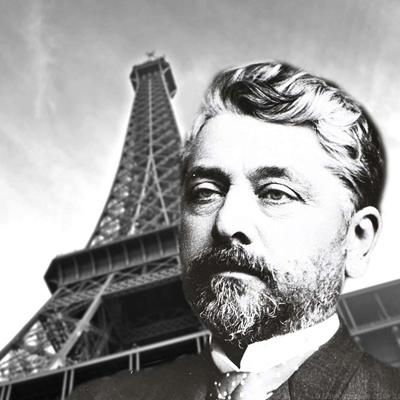
15/12/1832 – 27/12/1923
Gustave Eiffel, born in 1832 in Dijon, France, and passed away in 1923, was a renowned engineer and architect, most famous for the tower that bears his name in Paris. A graduate of the École Centrale des Arts et Manufactures in Paris, Eiffel began his career by building bridges for railways, excelling in this field thanks to his innovative use of wrought iron.
Eiffel made significant contributions to civil engineering with structures such as the Garabit viaduct in France and the internal framework of the Statue of Liberty in New York. However, it is the Eiffel Tower, completed in 1889 for the Paris Exposition Universelle, that remains his most famous masterpiece. Initially controversial, this 300-meter tower has become an iconic symbol of modern engineering and architectural beauty.
Beyond his engineering achievements, Eiffel was a pioneer in the use of mathematical calculations in structural design, foreshadowing modern engineering techniques. His innovative approach not only changed the urban landscape but also influenced generations of architects and engineers.
